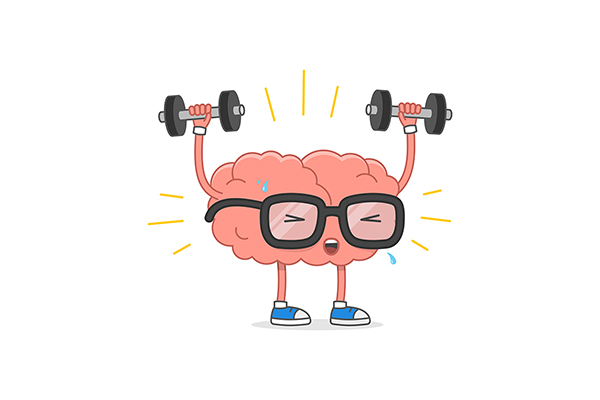Taking care of your health can feel like a full-time job- trust me, I get it. Doctor’s appointments, medications, exercise, eating well and so forth.
However, with all of this time and energy being put into your well-being, you are also investing in your brain’s future.
Brain Health is a crucial piece of your everyday physical and mental health. We use our brain to problem-solve, make decisions, remember, communicate and more. The brain even controls things we don’t even know we think about, like breathing and walking.
Unfortunately, the older we get, the harder the brain has to work to do these simple tasks, leaving us susceptible to life-altering conditions like Dementia and Alzheimer’s. Being that it is one of the most valuable organs in the human body, you’d think we would keep up with its health too!
Since your brain controls your whole body, anything that benefits your physical health will then, in turn, benefit your brain. According to the World Federation of Neurology (WFN), there are 5 major areas that increasingly help your brain health as you get older. Some of them you may even be participating in already!
Sleep: as you lay in bed, your brain is constantly working to consolidate information of the day. It stores memories, disposes of metabolic waste, and rejuvenates itself for the next day. The more uninterrupted sleep your get, the better your brain can work while you rest up. On average, 6 to 7 hours a night of restful sleep is what The WFN recommends.
Environment: some things in your everyday life can also tremendously affecting your brain health. This can include toxins in food, water, and air, or even head trauma from extreme contact sports or repetitive injury. The environment around us can cause a harmful setting to our ever-growing brain cells, which can lead to neurodegenerative, neurodevelopmental disorders, or even a stroke, according to the WFN.
Diet: A well-balanced diet can do wonders for your brain, just as much as it can for your body. An unbalanced diet can cause stress on your brain, leading to oxidation of brain cells, according to healthybrains.org. “Food rich in antioxidants can help fend off the harmful effects of oxidation in your brain.”
Access to Care: Keeping yourself in the loop and informed on your body can be extremely beneficial for your brain. Consistently going to your primary doctor, receiving care, and being exposed to preventative treatments will catch issues early and allow for proper treatment.
Finally, the last key aspect to keeping your brain healthy is Exercise. I don’t just mean going to the gym and lifting weights.
Of course, physical exercise is extremely beneficial to your brain, just as much as it is to your body. Consistent and regular exercise has proven to slow down age-related brain deterioration and maintain different cognitive abilities that normally decrease with age. It lowers your risk of vascular disease, high blood pressure, and even a stroke. Increasing blood flow to your brain provides additional nourishment and reduces potential dementia risk factors, according to the Alzheimer’s Association.
Brain Training, or “working out” your brain, is also a highly beneficial way to positively influence your brain health. Friendly competition of different stimulating games can help you stay mentally and socially active. The WFN recommends crossword puzzles, Sudoku, and chess as logic-strengthening games that allow for mental exercise; and that can be done every day.
Longer, and more mentally challenging activities such as learning something new, can be an effective way of “working out” your brain. According to the Alzheimer’s Association, “learning a new skill, adopting a new hobby, or engaging in formal education, may have short and long-term benefits for your brain. To keep your mind active, it is important to participate in activities that expose your mind to new topics.”
Research on brain training and its direct effects in lowering the risks of cognitive deterioration are limited, but studies are ongoing. Be careful while researching brain training, as many commercial training packages and apps are available and claim to have results that are not proven yet.
According to the Alzheimer’s Society, “People should be cautious if they find commercial packages that claim they can prevent or delay cognitive decline as the evidence for this is currently lacking.” Though it is unknown if some of these commercial brain training games have the effects they may say, many are still fun and do no harm.






